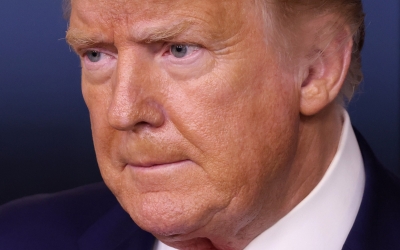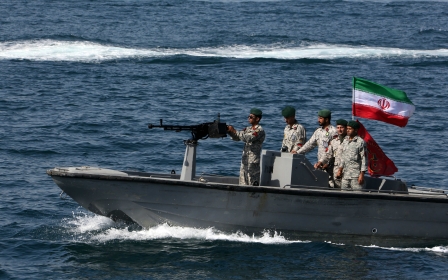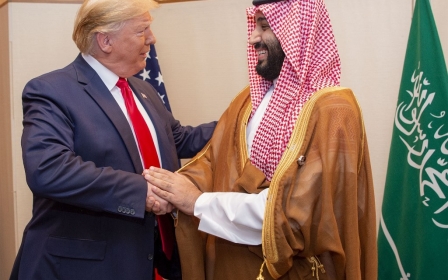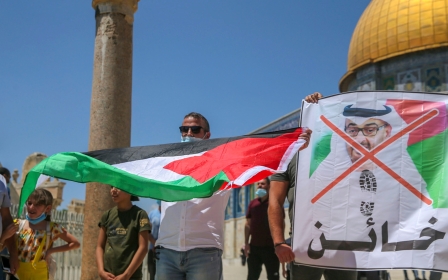UAE did not discuss Israel deal with Arab allies before announcement, Gargash says
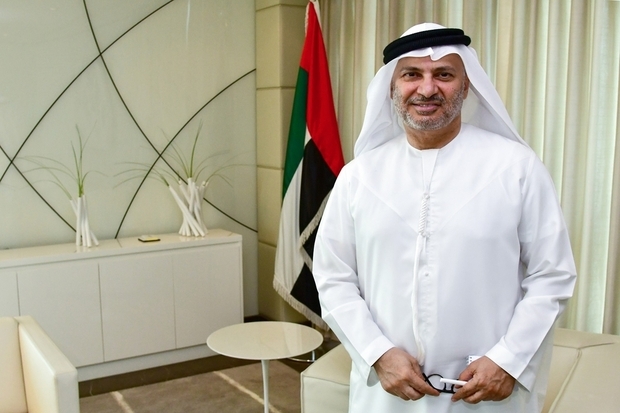
Senior Emirati diplomat Anwar Gargash said the United Arab Emirates (UAE) did not coordinate the Israel normalisation deal with its allies, suggesting that Saudi Arabia and other Gulf countries were unaware of the agreement before it was announced.
"We did not discuss this deal prior to the announcement with any of our friends - none of them, no Arab country, nobody - because we clearly thought that this will actually jeopardise the deal," Gargash told the Atlantic Council in a virtual interview early on Thursday.
The White House announced the preliminary agreement between the two countries, saying that Israeli and Emirati leaders would soon meet in Washington to discuss the details of establishing formal diplomatic relations.
The right-wing government of Israeli Prime Minister Benjamin Netanyahu agreed to "suspend" plans to annex large parts of the West Bank as part of the deal, although he has repeatedly said over the past week that he is still committed to the annexation scheme.
Saudi silence
New MEE newsletter: Jerusalem Dispatch
Sign up to get the latest insights and analysis on Israel-Palestine, alongside Turkey Unpacked and other MEE newsletters
Saudi Arabia, a key ally of both the United States and the UAE, took several days to comment on the announcement that had been more quickly welcomed by fellow Gulf countries Oman and Bahrain.
On Wednesday, Saudi Foreign Minister Faisal bin Farhan al-Saud cautiously welcomed the deal, saying that it "could be viewed as positive" in that it staves off Israel's annexation plans.
But Saud stressed that the kingdom is committed to the Arab Peace Initiative, which was adopted by the Arab League during a summit in Beirut in 2002.
That plan conditions normalisation with Israel on ending the occupation of Arab territories in the West Bank, East Jerusalem and Gaza, as well as Syria's Golan Heights.
"Saudi Arabia considers Israel's unilateral policies of annexation and building settlements as illegitimate and detrimental to the two-state solution," Saud said at a forum in Berlin.
"Saudi Arabia affirms its commitment to peace as a strategic option based on the Arab Peace Initiative."
US officials, including President Donald Trump and his senior adviser and son-in-law Jared Kushner, have said that they expect Riyadh to follow in the UAE's footsteps and normalise with Israel.
Still, Saud's remarks suggest that the kingdom - at least for now - will not build formal ties with Israel without a broader peace agreement.
On Thursday, Gargash, who serves as the UAE minister of state for foreign affairs, said normalising with Israel was a "sovereign" Emirati decision.
The UAE official noted that Abu Dhabi's relations with Israel had been opening up informally for years and the official announcement benefits Palestinians with the suspension of annexation.
"The decision to normalise ties with Israel was coming sooner or later," he said.
Relations with Iran
Gargash said even though the regional climate towards Iran contributed to rapprochement between Arab countries and Israel, the normalisation deal was not aimed against Tehran, which has slammed the agreement, calling it a "strategic mistake".
On Wednesday, Gargash said that despite the tensions, Abu Dhabi looks forward to improved ties with Tehran.
"Our long-term objective is to actually have a much better relationship with Iran," he said.
"But in that case, of course, Iran has to also acknowledge that many of the regional policies of the past 15-20 years have really created this friction not only with the UAE but with many other countries in the Gulf in the Arab world and beyond."
Asked if the UAE embassy in Israel will be in Tel Aviv or Jerusalem, the Emirati diplomat said Abu Dhabi is committed to the "international consensus" on the two-state solution. "Any embassy will be in Tel Aviv."
Middle East Eye delivers independent and unrivalled coverage and analysis of the Middle East, North Africa and beyond. To learn more about republishing this content and the associated fees, please fill out this form. More about MEE can be found here.


